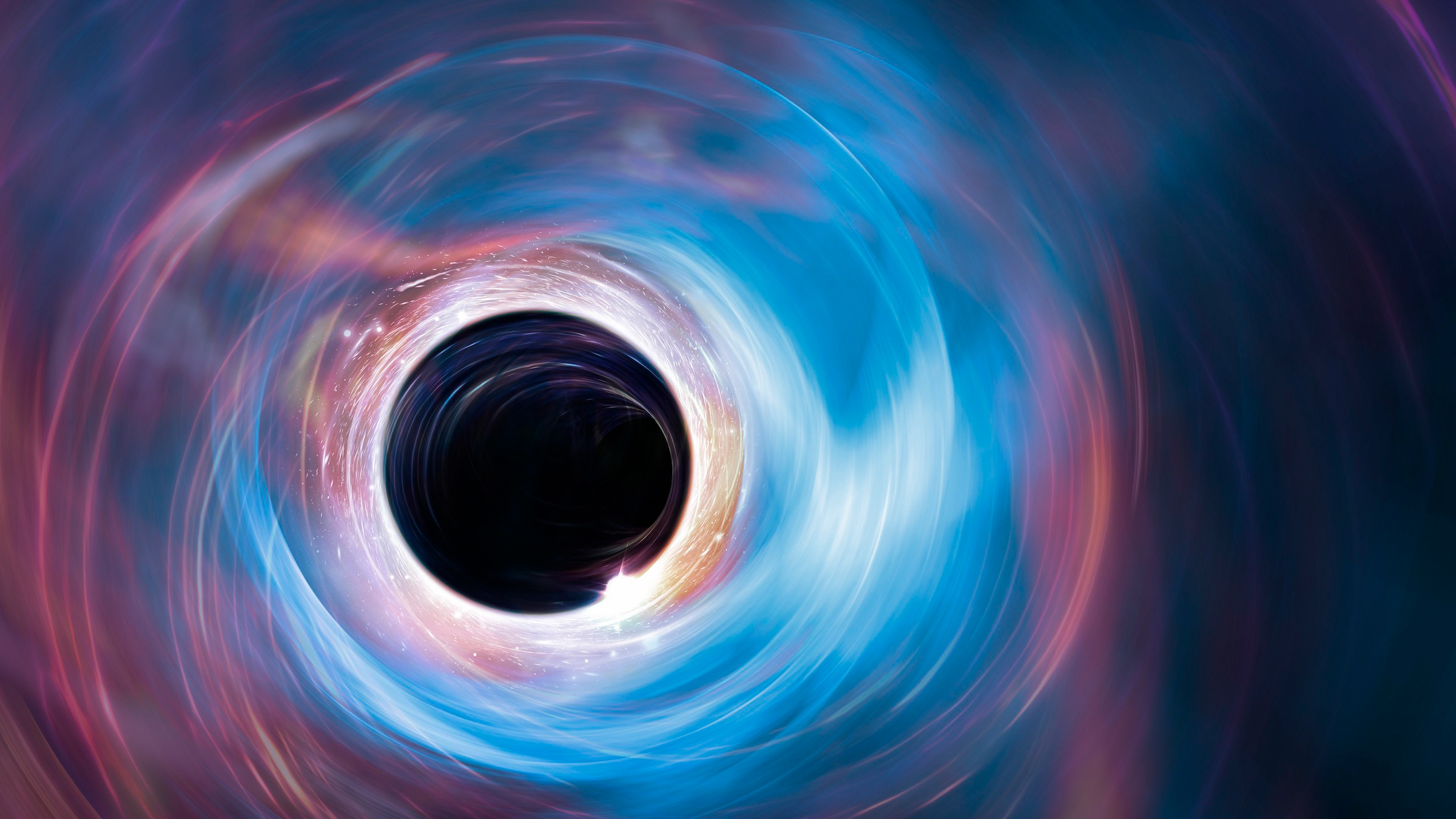Could Earth be inside a black hole?
And for that matter, could our universe be inside a black hole?

Get the world’s most fascinating discoveries delivered straight to your inbox.
You are now subscribed
Your newsletter sign-up was successful
Want to add more newsletters?

Delivered Daily
Daily Newsletter
Sign up for the latest discoveries, groundbreaking research and fascinating breakthroughs that impact you and the wider world direct to your inbox.

Once a week
Life's Little Mysteries
Feed your curiosity with an exclusive mystery every week, solved with science and delivered direct to your inbox before it's seen anywhere else.

Once a week
How It Works
Sign up to our free science & technology newsletter for your weekly fix of fascinating articles, quick quizzes, amazing images, and more

Delivered daily
Space.com Newsletter
Breaking space news, the latest updates on rocket launches, skywatching events and more!

Once a month
Watch This Space
Sign up to our monthly entertainment newsletter to keep up with all our coverage of the latest sci-fi and space movies, tv shows, games and books.

Once a week
Night Sky This Week
Discover this week's must-see night sky events, moon phases, and stunning astrophotos. Sign up for our skywatching newsletter and explore the universe with us!
Join the club
Get full access to premium articles, exclusive features and a growing list of member rewards.
To Earthlings gazing into space, our solar system appears to be surrounded by billions of stars in the Milky Way. But if we look even further out, would it be possible to find evidence that we were in something even more fantastic, like a black hole?
Black holes are places in the universe where gravity is so strong it distorts the time and space around it; once inside, nothing — not even light — can get out.
In one scenario, a black hole could have swallowed Earth long ago. But if this were to happen, the gravitational pull would be catastrophic, said Gaurav Khanna, a black hole physicist at the University of Rhode Island. As Earth approached the black hole, time would slow. And depending on the size of the black hole, matter could be stretched out into spaghetti-like shapes. Even if the planet survived this "spaghettification," Earth would be bound for the dense and tiny singularity, where it would be incinerated by the pressure and temperature of an unfathomable gravitational force, Khanna told Live Science.
So we can rule out the possibility that a black hole swallowed Earth at some point in its history; it would have been obliterated in a fraction of a second, Khanna said.
Related: How does a black hole form?
But there's another way Earth might have ended up in the belly of a black hole: It could have formed there.
"A black hole looks very much like the Big Bang in reverse. … The math looks similar," Khanna said. While a black hole collapses in on a tiny, highly dense point, the Big Bang exploded out of such a point.
Get the world’s most fascinating discoveries delivered straight to your inbox.
One theory posits that the Big Bang was first the singularity of a black hole in a larger parent universe. The dense center compressed and compressed, "until somehow it blows up and a baby universe is formed within the black hole," Khanna said.
This theory, known as Schwarzschild cosmology, suggests that our universe now expands within a black hole that is part of a parent universe. In theory, this scenario would mean that universes can exist within universes, like Russian nesting dolls, and that traveling back through a black hole — a likely impossible feat, since light can't even make the reverse journey — would unlock unknown realms, Khanna said.
However, this theory is unlikely to be proven; nothing can travel back across a black hole's event horizon.
But if Earth is within a black hole, experts have some estimation of the space chasm's size. "If we are in a black hole it must be extremely big," said Scott Field, an associate professor of mathematics at the University of Massachusetts Dartmouth. Earth is not just tucked into a planet-size black hole or even one the size of the solar system. If that were the case, scientists would have noticed, Field told Live Science. There would be observable signatures of the black hole's spinning. Or, we'd see the subtle distortions caused by extreme gravity — like slowing time and stretching matter — as people moved within the black hole.
If Earth existed in an Earth-size black hole, for instance, people would notice effects of these tidal forces, like spaghettification and slowed time, as they traveled from one spot on the globe to another, said Field, who works on gravitational modeling and simulation, including black hole collisions.
So any black hole Earth called home must be enormous, universe-size and so vast that we can't travel far enough or fast enough to detect the gravitational distortions, Field said.
From inside a black hole universe, Earthlings "would have no way of knowing there was another parent universe in existence," Khanna said. We'd be oblivious to it. So finding our universal predecessor would be tough, to say the least. Still, "it would be lovely" if this theory were true, he said.

Donavyn Coffey is a Kentucky-based health and environment journalist reporting on healthcare, food systems and anything you can CRISPR. Her work has appeared in Scientific American, Wired UK, Popular Science and Youth Today, among others. Donavyn was a Fulbright Fellow to Denmark where she studied molecular nutrition and food policy. She holds a bachelor's degree in biotechnology from the University of Kentucky and master's degrees in food technology from Aarhus University and journalism from New York University.
 Live Science Plus
Live Science Plus











